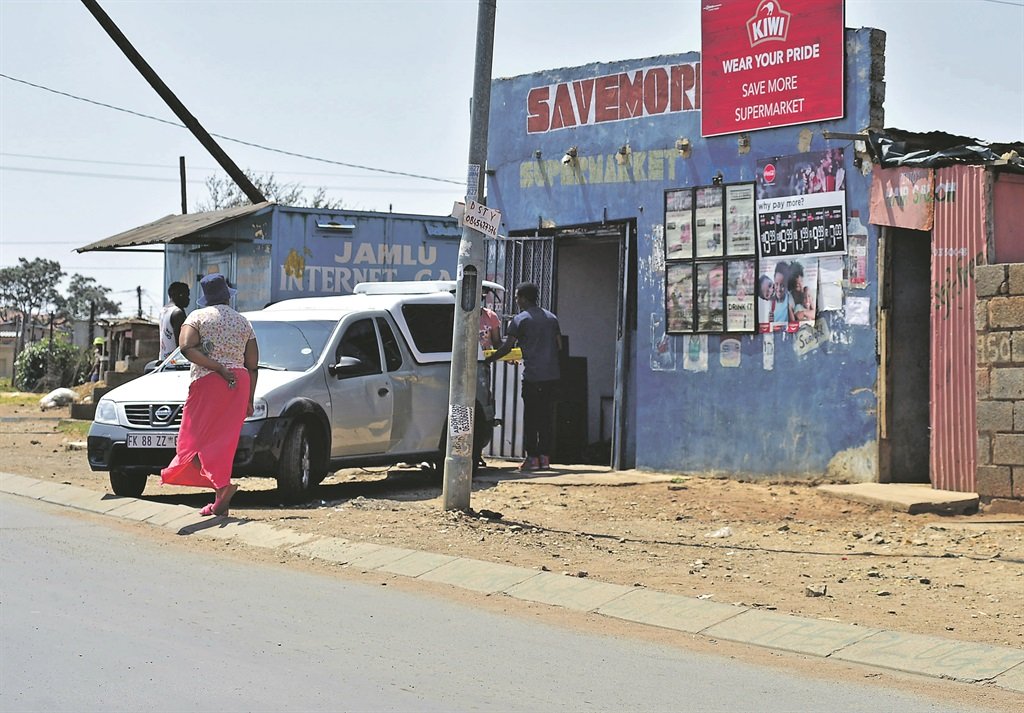News
Behind the Till: Parks Tau Explains How R100K Spaza Fund Is Kept in Check

Spaza Shop Support Fund: Inside the safeguards, systems, and politics of township entrepreneurship funding
The South African government’s R100,000 Spaza Shop Support Fund was launched to uplift township businesses, but public scrutiny has kept the heat on. With food safety scandals and rampant informal trading headlines from last year still fresh in the public’s mind, the pressure to ensure this money is used properly has been immense.
Now, Minister of Trade, Industry and Competition Parks Tau has offered the most detailed explanation yet of the fund’s oversight and accountability framework, outlining how funds are released, tracked, and safeguarded through layers of automated systems, committees, and municipal checks.
Let’s break it down.
A township lifeline, under the microscope
The Spaza Shop Support Fund, offering up to R100,000 per applicant, was designed to help small retailers in informal settlements improve stock, infrastructure, and management. The package includes:
-
R40,000 grant for stock
-
R50,000 blended loan/grant for upgrades (like shelves or fridges)
-
R10,000 worth of digital tools and training
This isn’t just handouts. It’s a structured support system for some of South Africa’s most overlooked entrepreneurs — those trading from tuck shops, corner stores, and converted garages in townships.
But where there’s money, there’s concern. And following past incidents of mismanagement in public enterprise funding, questions have been swirling: Who approves the money? Where does it go? How do we know it’s not wasted?
NEF’s digital system keeps the books tight
In response to questions from DA MP Anna Maria van Zyl, Tau revealed that the National Empowerment Fund (NEF) is the engine room for approvals.
Applications are fed through the NEF’s automated Customer Relationship Management system, which provides daily real-time reports on status, bottlenecks, and approvals. Think of it as an internal dashboard — no more disappearing files or handshakes behind closed doors.
Once an application is greenlit, it still has to pass a formal review by the NEF’s Investment Committee, which applies strict criteria and conducts due diligence. Only then is funding approved.
Tau added that the NEF’s Finance Division enforces a pre-release validation process, ensuring payments meet the agreed terms. In short, money doesn’t move until everything checks out.
No cash-in-hand: direct payments to suppliers
Tau also made a crucial point — the fund is structured to minimise fraud and misappropriation by avoiding direct cash transfers to applicants.
Instead, disbursements are made directly to vetted suppliers, covering stock purchases, shop fittings, or equipment. This means fewer chances for “ghost shops” or side hustles that misuse state funds.
Additionally, once funding has been used, the NEF’s Post-Investment Unit steps in to monitor its impact. This includes site visits, receipt reviews, and stock verifications to ensure the items bought are actually in the store and being used.
Cogta’s municipal checks ensure local compliance
Some confusion has circulated about the role of the Department of Cooperative Governance and Traditional Affairs (Cogta) in the process. Tau cleared that up too: Cogta isn’t disbursing the funds. Rather, it supports local municipalities, which are in charge of business licences and trading permits.
So, if a spaza shop isn’t licensed or doesn’t comply with local bylaws, it doesn’t get the funding. Cogta’s job is to verify permits and ensure applicants are running legitimate, above-board shops.
This helps protect the fund’s integrity and keep local government involved in regulating an often chaotic informal sector.
Weekly meetings, monthly updates: real-time coordination
To further strengthen the system, Tau confirmed weekly coordination meetings between the NEF, the Department of Small Business Development, the DTIC, and the Small Enterprise Development Finance Agency (Sedfa).
These bodies also share a central database and portal to process applications, preventing duplicate or fraudulent entries.
High-level summaries are reported monthly to the NEF Executive Committee and quarterly to the NEF Board for broader strategic oversight.
Public trust still needs to be earned
While the framework looks solid on paper, public sentiment remains cautious. On social media, many praised the “no-nonsense” structure but others questioned the NEF’s capacity to deal with potential political interference or ensure fair access across provinces.
Some spaza owners in Soweto said they hadn’t yet heard of the portal, raising concerns about awareness and outreach, especially in areas where internet access is limited.
Others recalled 2024’s food poisoning tragedies, which prompted the initial drive to formalise and regulate the spaza sector. Many of those cases involved illegal and unregulated shops, underscoring why compliance checks are critical now.
A fund worth watching
Parks Tau has laid out what may be one of the most carefully monitored government support funds in recent memory. But its true test will be in delivery, transparency, and local impact — not just committee minutes and system dashboards.
With thousands of families relying on township trade to survive, the stakes couldn’t be higher.
If implemented well, this fund could become a blueprint for informal economy development. If mismanaged, it will be remembered as another missed opportunity.
For now, all eyes are on the NEF and the spaza shop owners waiting on their lifeline.
{Source: The Citizen}
Follow Joburg ETC on Facebook, Twitter , TikTok and Instagram
For more News in Johannesburg, visit joburgetc.com


























